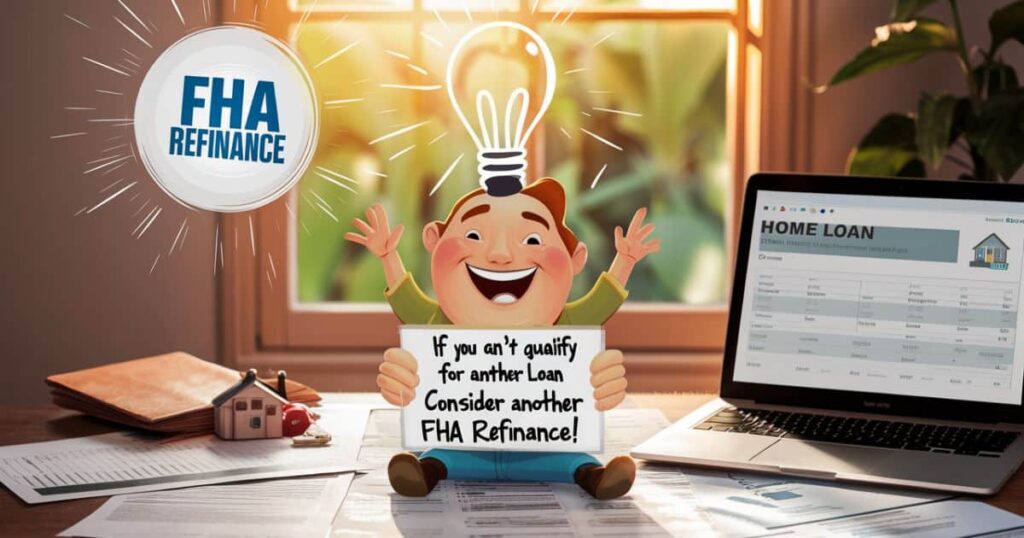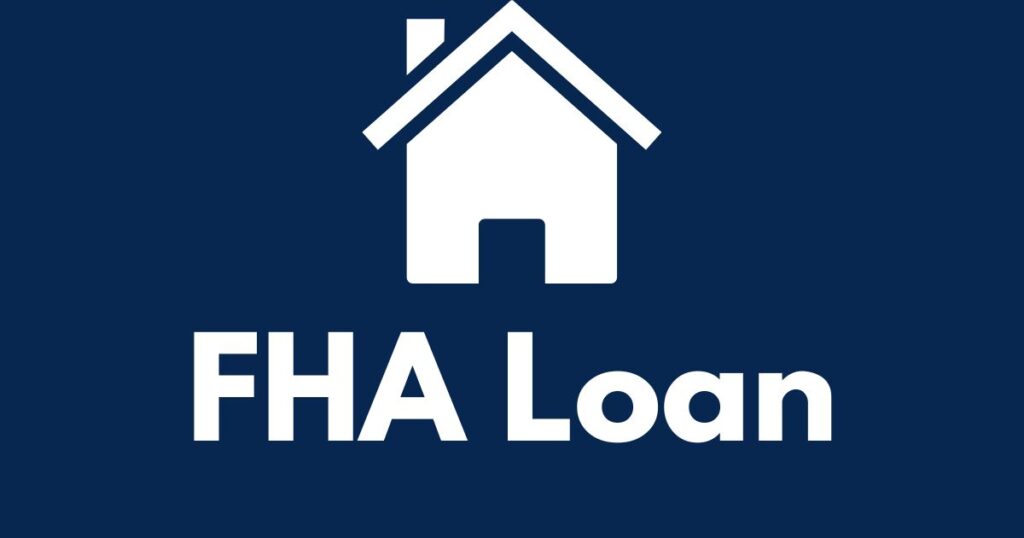For homeowners with a Federal Housing Administration (FHA) loan, private mortgage insurance (PMI) is a mandatory upfront and annual cost when the down payment is less than 20% of the home’s value.
While PMI protects the lender if you default, it adds a significant expense that can extend for the life of the loan. Getting rid of PMI on an FHA mortgage can save you hundreds of dollars per month and thousands over the loan’s duration. In this guide, we’ll explore strategies to legally remove this costly insurance.
Determining how much equity you have
The key requirement to eliminating PMI is having at least 20% equity in your home based on the current market value and remaining loan balance. Equity is calculated by taking the home’s value and subtracting the outstanding loan amount.
For example, if your home is worth $300,000 and you owe $220,000 on the mortgage:
Home Value: $300,000 Remaining Loan Balance: $220,000 Equity = $300,000 – $220,000 = $80,000
In this case, you have $80,000 in equity, which is over 20% of the $300,000 home value. This qualifies you to potentially remove PMI.
What was your home’s initial down payment?
The amount of your original down payment impacts when and how you can cancel PMI:
Less than 10% down: PMI will not be canceled automatically, even when you reach 20% equity. You’ll need to refinance to a new loan without PMI.
10-20% down: Once you reach 20% equity, you can request PMI cancellation from your lender.
When was your FHA loan originated?
In addition to your current equity stake, the origination date of your FHA mortgage affects the PMI removal rules:
Loans Originated Between July 1991 and December 2000
For FHA loans closed during this period, PMI could be canceled once the outstanding principal balance reached 78% of the original property value. The lender was required to terminate PMI at this loan-to-value (LTV) ratio.
Loans Originated Between January 2001 and June 3, 2013
Loans opened between these dates qualified for PMI cancellation once the borrower:
- Had the mortgage for at least 5 years
- Reached 78% LTV based on the original property value
Once both criteria were met, the borrower could request PMI termination from their lender.
FHA Loans Originated After June 3, 2013
For FHA case numbers assigned after this date, the rules changed significantly. PMI premiums are now required for the entire loan term, extending for 11 years or more in many cases. The only way to remove PMI on these newer FHA loans is to refinance into a new mortgage once 20% or more equity is achieved.
How much is MIP on FHA loan?
The mortgage insurance premium (MIP) consists of both an upfront fee and annual premiums on FHA loans:
Upfront MIP: 1.75% of the base loan amount, usually financed into the mortgage.
Annual MIP: The annual premium ranges from 0.45% to 1.05% of the outstanding loan balance each year, divided into the monthly mortgage payment.
For example, on a $200,000 FHA loan, the upfront MIP would be $3,500 (1.75% of $200,000). If the annual MIP is 0.85%, the yearly cost is $1,700 or around $142 per month.
These MIP rates increased in recent years, making PMI removal an even higher priority to reduce housing costs.
Why did my FHA mortgage insurance go up?

In April 2013, FHA mortgage insurance premiums were increased to help replenish the agency’s reserves, which were depleted during the housing crisis. The changes impacted both upfront and annual MIP on most new FHA loans.
Annual MIP Increases:
- For loans <= $625,500, annual MIP increased from 1.25% to 1.35% of the loan amount.
- For loans > $625,500, annual MIP rose from 1.2% to 1.5%.
Upfront MIP Increase:
The upfront MIP jumped from 1% to 1.75% of the base loan amount.
While these increases helped fortify the FHA’s insurance fund, they placed a higher long-term burden on borrowers. This makes removing MIP through a refinance even more beneficial today.
What’s the difference between PMI and MIP on an FHA loan?
It’s important to distinguish mortgage insurance premiums (MIP) paid to FHA from private mortgage insurance (PMI) paid to private insurers:
PMI is private insurance provided by companies like MGIC, Radian, Essent, etc. This is typically required on conventional loans when the down payment is less than 20%.
MIP is an insurance premium paid to the Federal Housing Administration. MIP is required on all FHA loans as protection for the lender.
While both types of mortgage insurance offer protection to lenders against default, PMI rates can be higher than FHA’s MIP rates. However, PMI can be removed once 20% equity is reached, while MIP generally lasts for the life of the loan on newer FHA mortgages.
PMI on FHA loan calculator
To estimate your potential savings from removing mortgage insurance, let’s look at an example with this PMI calculator:
Home Purchase Price: $275,000
Loan Amount: $265,000 (3.6% down payment) Interest Rate: 4.25% Loan Term: 30 years Annual MIP: 0.85% Upfront MIP financed: $4,637 (1.75% of loan amount)
With MIP:
Monthly Principal & Interest: $1,309 Monthly MIP: $189 Total Monthly Payment: $1,498
After Removing MIP:
Monthly Principal & Interest: $1,309
By refinancing to remove MIP after building 20%+ equity, the monthly savings would be around $189 or $2,268 annually. Over 30 years, eliminating MIP yields over $68,040 in savings.
The upfront MIP costs are unavoidable on FHA loans, but canceling the annual premiums provides a sizable long-term benefit for homeowners.
Read Also This Post: Should You Buy A House With A West Facing Garden? Pros And Cons Explained
Benefits of removing FHA mortgage insurance
Beyond the direct monthly payment savings, there are additional advantages to canceling mortgage insurance:
- Build home equity faster: Without mortgage insurance premiums, more of your payment goes to principal reduction.
- Increases home’s resale value: Removing MIP makes the property more attractive to potential buyers.
- Improves cash flow: The extra money saved can go towards other expenses, investments, etc.
- Qualify for lower mortgage rates: Once PMI is removed, you may be eligible for lower interest rates on a new loan.
Essentially, taking the steps to legally remove FHA mortgage insurance helps accelerate your ability to build wealth through home equity over time.
Removing FHA mortgage insurance
There are two main methods for eliminating the annual MIP payments on an FHA loan:
- Applying for MIP cancellation directly with your current lender.
- Refinancing the FHA mortgage to a conventional loan without mortgage insurance.
The option available depends on when your loan originated, your current equity position, credit standing, and other factors.
How to get rid of PMI on FHA loan without refinancing?
For FHA loans originated before June 3, 2013, you may be able to request cancellation of annual MIP payments directly from your loan servicer if you meet the following criteria:
- You have at least 20% equity in the home based on the remaining principal balance. For loans originated after June 2013, the 20% requirement is based on the original home value.
- The loan is at least 5 years old.
- Your mortgage payments have been paid on time.
It’s important to note that MIP cancellation is not automatic on FHA loans. You will need to take the following steps:
- Request a mortgage statement: Ask your loan servicer for a statement verifying your loan balance and interest paid to date.
- Obtain a home appraisal: You’ll need an appraisal from a certified professional to establish the home’s current market value.
- Calculate your equity position: Using the appraised value and current loan balance, calculate your equity percentage. It must exceed 20%.
What if I can’t remove FHA mortgage insurance?
If you don’t meet the requirements to cancel MIP directly with your current lender, you still have options to potentially eliminate the annual premiums:
Conventional Loans
For homeowners with sufficient home equity and credit scores, refinancing from an FHA to a conventional mortgage may allow you to avoid mortgage insurance altogether. Conventional loans do not require mortgage insurance with at least 20% home equity.
VA Loans
Military borrowers may qualify for a VA loan backed by the U.S. Department of Veterans Affairs. VA mortgages do not require any monthly mortgage insurance premiums, which can provide significant monthly payment relief compared to FHA loans.
Jumbo Loans
In higher-cost areas, you may be able to refinance into a non-conforming jumbo loan if your loan amount exceeds the county’s conforming loan limits. Jumbo loans typically don’t require mortgage insurance with 20%+ equity.
What if the new lender still requires PMI?
Even after building sufficient home equity, some lenders may still require private mortgage insurance if their underwritten property value calculates to less than 20% equity.
Dispute the lender’s appraisal of your home
If you believe the lender’s appraisal undervalues your home’s true market worth, you have the right to dispute and order a new appraisal from a different certified appraiser. Providing better supporting evidence like recent comparable sales can increase the valuation.
If you can’t qualify for another loan, consider another FHA refinance

When all other options are exhausted, you may be able to refinance into a new FHA loan with a lower mortgage insurance premium. An “FHA Streamline Refinance” has relaxed credit requirements and underwriting compared to other refinance paths.
The main advantages are:
- Skips extensive income/asset documentation
- No home appraisal is required
- Upfront MIP may be lower
However, the annual MIP premiums will still apply for the life of the new FHA loan. But it could provide temporary monthly savings if you can’t remove mortgage insurance immediately.
How to remove PMI on conventional loan?
While this guide focuses on FHA loans specifically, conventional borrowers also want to avoid PMI beyond when it’s required. For a conventional mortgage:
- Request PMI cancellation once you reach 20% equity based on original value
- PMI automatically terminates at 22% equity based on original value
Unlike FHA, conventional mortgage insurance must be removed once the required equity levels are reached.
How to increase home equity and value?
Building equity in your property more rapidly puts you in a better position to eliminate mortgage insurance quicker. Here are some tips:
- Make extra payments directly to your principal balance
- Renovate and update to increase the resale value
- Finish an unfinished basement or other value-adding projects
- Make energy efficiency improvements (new windows, appliances, solar, etc.)
- Seek out the highest possible appraisal value when refinancing
Even small improvements can boost your equity percentage and strong-arm appraisers into a higher valuation.
Find the best way to unlock home equity
If removing mortgage insurance requires tapping some of your home equity, look at all your available options:
Cash-out refinance: Refinance into a new larger loan amount and pocket the equity difference in cash.
Home equity loan: A second smaller loan utilizing your home as collateral.
HELOC: A home equity line of credit allows drawing against your equity as needed.
Evaluate the costs and impact on your interest rates to determine the ideal route for accessing your equity. But having 20%+ equity opens up these additional financing choices.
Conclusion
While mortgage insurance premiums are unavoidable on FHA loans, understanding the rules and being proactive about eliminating these fees once sufficient equity is built up is crucial for maximizing your long-term cost savings.
Take the time to know your options – from requesting cancellation to refinancing into a conventional or alternate loan product. Removing mortgage insurance delivers financial breathing room and accelerates your journey towards being mortgage-free and building wealth through home equity.
What are your experiences with FHA mortgage insurance premiums? Were you able to successfully get rid of PMI and if so, how? Share your stories and any additional tips in the comments below.







